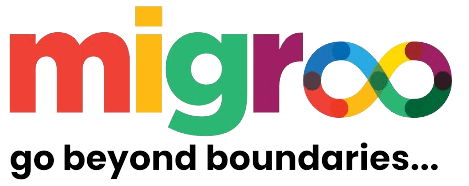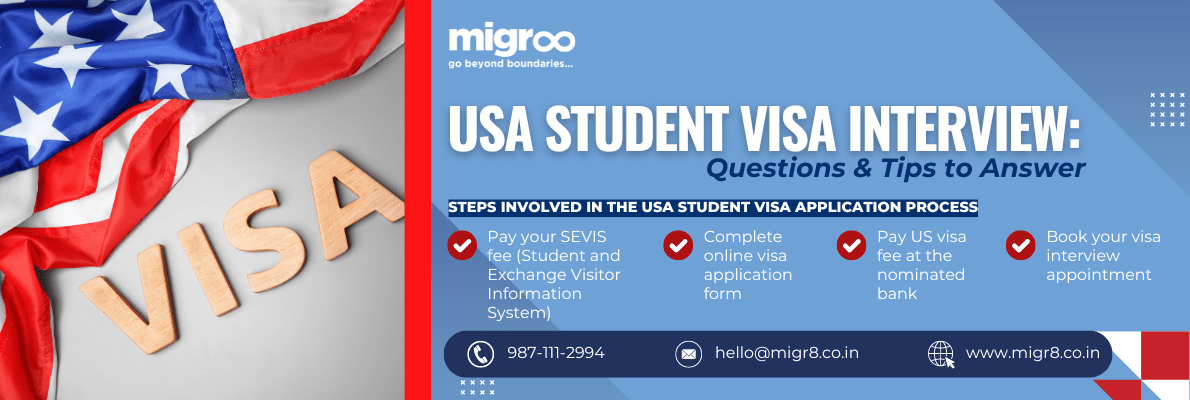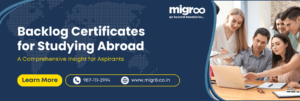Embarking on a journey to study in the United States is an exciting milestone, but it often involves navigating the visa application process, which includes an essential component: the student visa interview. This interview is a crucial step in securing your F-1 or M-1 student visa, and being well-prepared can make a significant difference in the outcome. In this guide, we’ll cover the types of questions you can expect during the interview, and offer expert tips to help you answer them effectively.
Understanding the USA Student Visa Interview
The student visa interview is conducted by a U.S. consular officer and is designed to assess your eligibility for a student visa. The primary objective of the interview is to determine if you meet the visa requirements and are genuinely intending to study in the U.S. The officer will evaluate various aspects of your application, including your financial stability, academic preparedness, and future plans.
Expected Questions in the Student Visa Interview
Being prepared for the types of questions you might encounter can help you respond confidently and clearly. Here are some common questions and what they aim to assess:
1. Why do you want to study in the United States?
- Purpose: To understand your motivation for choosing the U.S. as your study destination.
- Tip: Highlight specific reasons such as the quality of education, the reputation of the university, the course’s relevance to your career goals, or unique opportunities available in the U.S.
2. Why did you choose this particular university or college?
- Purpose: To evaluate your research and reasoning behind selecting the institution.
- Tip: Discuss the university’s academic strengths, faculty expertise, research facilities, or the specific programs that attracted you.
3. What is your intended major or course of study?
- Purpose: To ensure your chosen field of study aligns with your career goals and academic background.
- Tip: Provide a clear explanation of your chosen major, how it fits with your past education and career aspirations, and why it interests you.
4. How will you fund your education and living expenses in the U.S.?
- Purpose: To confirm that you have sufficient financial resources to cover tuition, living expenses, and other costs.
- Tip: Present a well-organized financial plan, including personal savings, family support, scholarships, or financial aid. Be ready to provide supporting documents such as bank statements or affidavits of support.
5. What are your plans after completing your studies?
- Purpose: To assess your long-term intentions and ensure you do not have immigrant intent.
- Tip: Clearly explain your career goals and how your education in the U.S. will help you achieve them. Emphasize your intention to return to your home country and contribute to your field.
6. Have you ever been to the United States before?
- Purpose: To gather information on your previous travel history and visa usage.
- Tip: Be honest about your travel history. If you have visited the U.S. before, briefly discuss the purpose of your visit and your experiences.
7. Do you have any relatives or friends in the United States?
- Purpose: To understand your ties to the U.S. and ensure that your visit is primarily for educational purposes.
- Tip: If you have relatives or friends, mention them briefly, but emphasize that your primary purpose for traveling is to study.
8. How did you hear about this university or college?
- Purpose: To gauge how thoroughly you researched your educational options.
- Tip: Explain the sources through which you discovered the institution, such as academic advisors, online research, education fairs, or recommendations from peers.
9. What is your academic background?
- Purpose: To evaluate your academic qualifications and preparedness for the course.
- Tip: Summarize your previous academic achievements, including degrees, relevant coursework, and any honors or awards. Highlight how your background supports your chosen field of study.
10. What do you know about the U.S. education system?
- Purpose: To assess your understanding of the U.S. educational system and how it fits into your academic plans.
- Tip: Demonstrate your knowledge of how the U.S. education system works, including its grading system, academic culture, and any specific aspects relevant to your program.
Tips to Answer Student Visa Interview Questions Effectively
- Prepare and Practice
- Tip: Anticipate common questions and practice your responses. This preparation helps you articulate your answers clearly and confidently during the interview.
- Be Honest and Transparent
- Tip: Answer all questions truthfully. Consular officers are trained to detect inconsistencies, and honesty is crucial to gaining their trust.
- Stay Calm and Composed
- Tip: Approach the interview with a calm demeanor. If you’re nervous, take a deep breath and take a moment to collect your thoughts before answering.
- Provide Clear and Concise Answers
- Tip: Keep your answers relevant and to the point. Avoid rambling or providing unnecessary details. Focus on addressing the question directly.
- Show Enthusiasm and Motivation
- Tip: Demonstrate your genuine interest in studying in the U.S. and your commitment to your educational and career goals.
- Organize Your Documents
- Tip: Bring all necessary documents, including your I-20 form, passport, financial statements, and any other supporting materials. Ensure they are well-organized and easily accessible.
- Understand Your Application
- Tip: Be familiar with the information in your visa application, as the officer may ask questions based on it. Ensure your answers align with your application details.
- Know Your University and Program Well
- Tip: Research your university and program thoroughly. Be prepared to discuss why you chose them and how they align with your academic and career objectives.
Conclusion
The U.S. student visa interview is a pivotal step in your journey to studying in the United States. By understanding the types of questions you might face and preparing thoughtful, honest responses, you can significantly improve your chances of a successful interview. Remember to stay calm, be clear and concise, and demonstrate your genuine enthusiasm for your studies. Good luck with your interview, and may your academic journey in the U.S. be both successful and rewarding!




